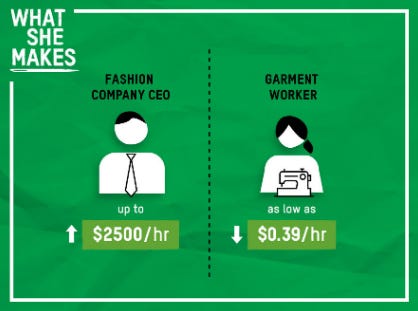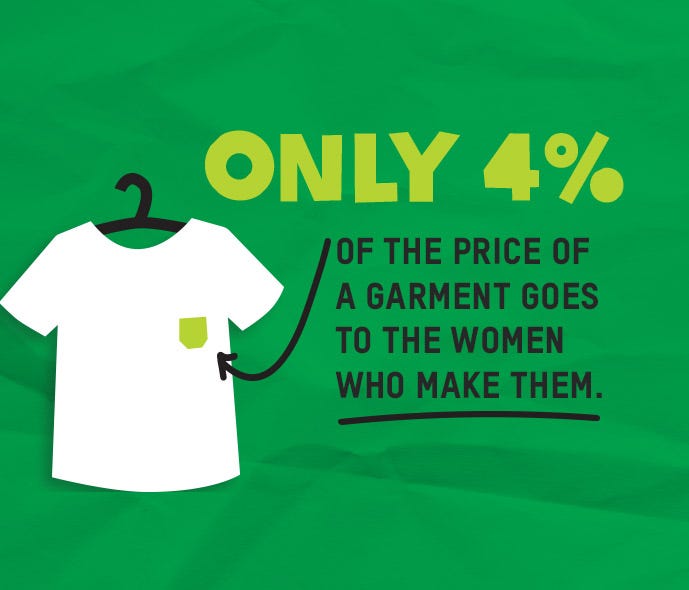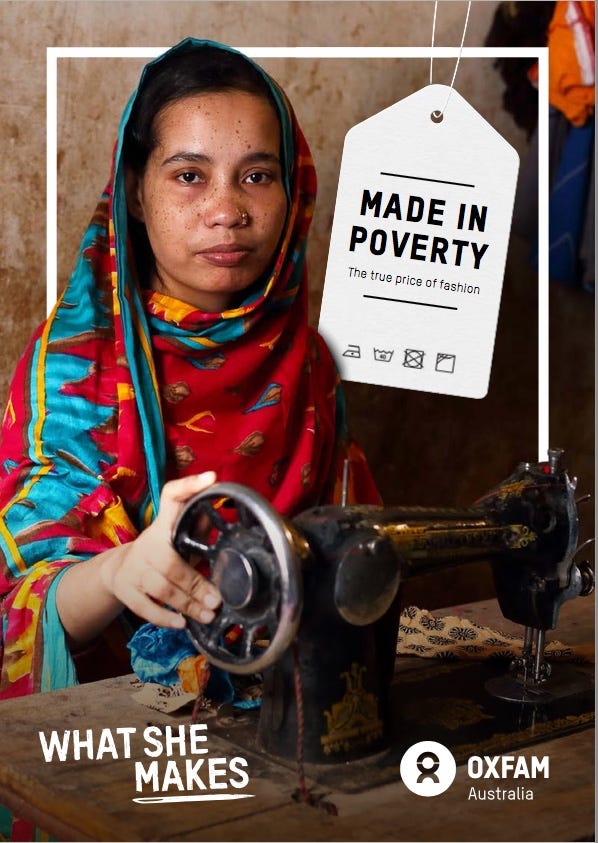The COVID19 pandemic highlights, more than any recent crisis, the duty of Governments to provide social protection. For workers, social protection ensures strong labor policies, living wages, safe and healthy working conditions, and the ability to have a voice in the workplace — in particular, to raise issues when they arise without fear of retribution. It also means there is a safety net in place when disaster strikes and workers and producers are no longer able to make a living by providing unemployment compensation, sick leave, and insurance.
But, many governments have not lived up to this duty, because they lack the resources to be able to do so, they espouse a race to the bottom approach in attracting foreign investment, and/or because they have been corrupted by business sector influence.
In a cruel irony, globalization has allowed multinational corporations to circle the globe to develop supply chains in countries with little to no regulation, enforcement, social protection and low wages yet reap huge profits as a result.

Women lack social protection at higher rates than men because they are less represented in formal labor markets, occupy more of the low wage work and contribute less to social protection programs by virtue of the gender pay gap — which provides them with lower wages for equal work.
COVID19 exposes in its rawest form the consequences of this lack of social protection. As companies are now seeing less demand for their products, many are abandoning their supply chain partners during the pandemic and refusing to even follow through with payments on existing contracts. Some food supply chains are beginning to brace for the worst as logistics and demand prevent them from delivering product.
Ideally, governments would be there to catch the workers and producers that are impacted by this sudden global halt of economic wheels — but they are not. It would be perverse to allow corporations to get away with placing responsibility with governments to rescue workers and producers when they have been benefiting from cheap labor in countries where at best they closed an eye to terrible working conditions, at worse they lobbied for measures to keep labor costs down despite human cost.
While not many predicted that it would be a pandemic that would disentangle these supply chains, Oxfam and others have been raising the alarm when it comes to the disruptive impacts of climate change on supply chains, and on the people who feed the economic engine with products, whether cocoa, soy, t-shirts or trousers.
What should be the responsibility of companies at the other end of these long supply chains, taking huge cuts of the final consumer price for themselves?

As Oxfam has highlighted, the response to the Rana Plaza incident, may offer a precedent for how to deal with the advantage that multinational corporations exploit in countries with little to no social protection.
In response to the tragedy where thousands of garment workers died in the collapse of a Bangladeshi factory, a fund was set up financed by multinational clothing brands to compensate workers and their families. This could be a template for what companies can do to insure and thus ensure longevity and legitimacy of their supply chains.
The Vision Zero Fund created by the ILO also works to respond to the lack of social protection for workers in many countries by bringing together government, multinational companies and the ILO in creating funds. But these are designed for prophylactic programs on social protection rather than compensation or insurance funds.
Workers and producers are also front-liners in this crisis
This unprecedented crisis highlights our dependency on workers and producers around the world. For too long they have been treated as a dispensable part of the long supply chains that crisscross our globe.

Multinational corporations have built their success on the backs of the cheap labor in their supply chains. In the absence of government support for workers, these corporations cannot now just cut off the chain, cancel orders and turn a blind eye to the immense suffering that is taking place and call on Government to pick up the pieces. That is morally wrong, but is also bad for business in the long run, once the economy starts picking up again.
Now is the time for them to come together with governments and multi-lateral institutions to set up multi-million dollar funds at a sectoral, global, or multi-stakeholder level, that will support — as long as the economic impact lasts — the people that form the backbone of their supply chains to weather the pandemic.
Sustainable social protection
The garment sector, together with trade unions, and the ILO have come together in fact to start to address the gaps exposed by COVID19 in a joint statement released April 22, 2020. Oxfam welcomes the statement as the commitments to invest in sustainable social protection systems in the longer term through supporting social protection floors, extending social protection for workers and employers in the garment industry and look into sustainable financing for such systems are timely.
But, Oxfam calls on the signatories to recognize the gendered impacts in the apparel sector. Women aged 18–25 make up 80% of the garment industry workforce globally, yet the statement does not acknowledge this at all.
In addition, while the statement emphasizes the need for ensuring the most vulnerable workers in the weakest countries will be prioritized, there is no clear requests made on brands aside from following through on existing contracts.
Commerce with compassion
While brands are being hit by the crisis, there must be equity in how it is felt across value chains. For too long, low wage workers, the majority of whom are women, have been carrying the load in good economic times but will fall further into poverty now that there is an economic downturn.
It is time for buyers in supply chains to step up with governments and create mechanisms for compensating or insuring workers during the pandemic. As India’s Textile Minister and the country’s apparel export body stated to global apparel buyers “do commerce with compassion.”
This entry posted on 24 April 2020, by Irit Tamir, Director of Private Sector, Oxfam
Please support Oxfam’s Global Coronavirus Response
This article was previously featured on Medium and is reproduced with permission.










